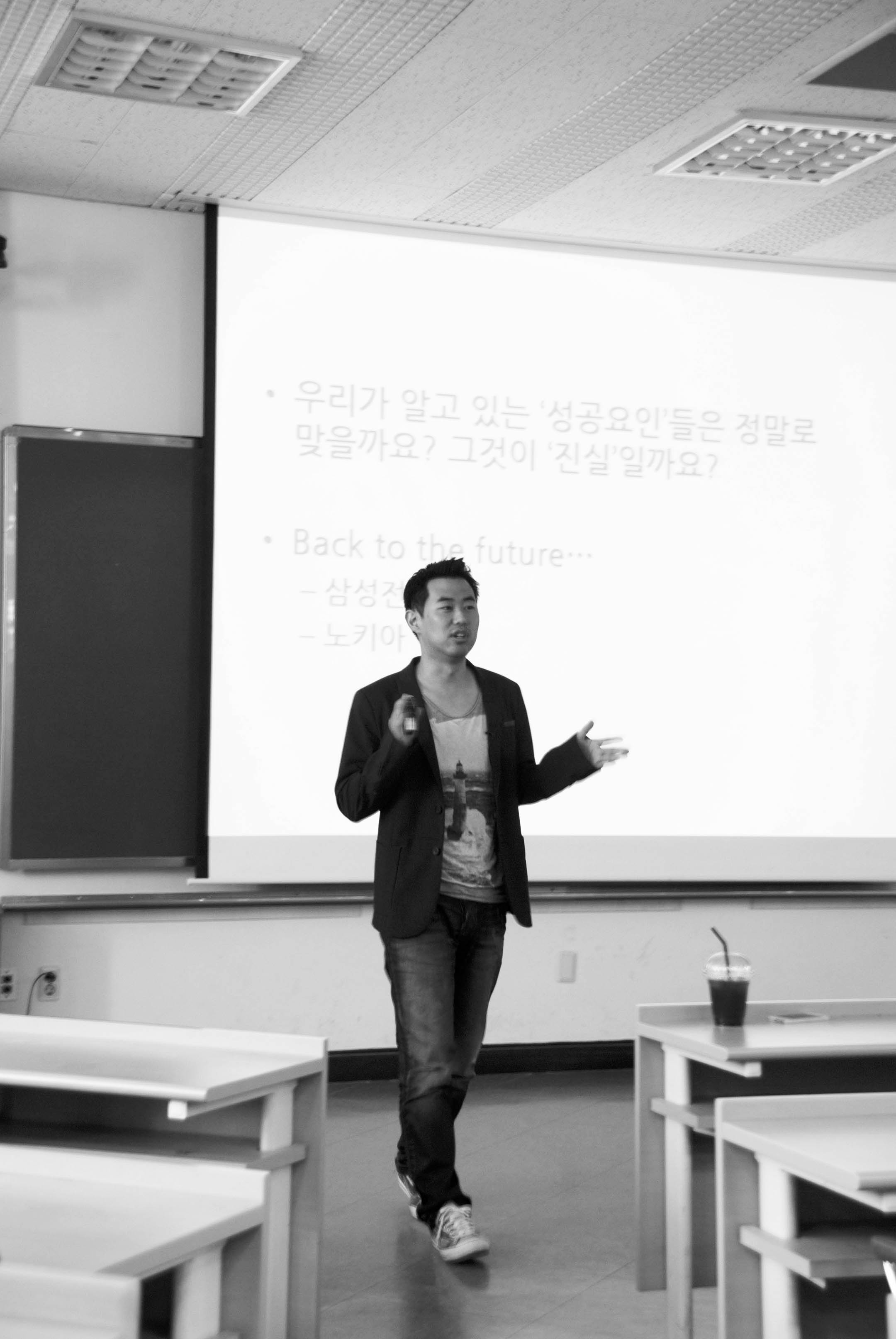Jimmy Rim is an alumnus of KAIST and currently the CEO of K-Cube Ventures. In Korea, he is also recognized with the title "the youngest CEO in the industry." On September 19, he visited KAIST to give a short lecture on his career and aspects of venture capitalism and entrepreneurship. Fortunately, we were able to hold a separate interview and ask him questions on similar topics.

Hello Mr Rim, thank you for being here with us today. Could you briefly introduce yourself to the readers?
Hello, my name is Jimmy Rim and I am currently the founder and CEO of K-Cube Ventures. I am also an alumnus of KAIST (class of '99) and majored in Industrial Engineering.
Could you tell us how your career has evolved and has led you to the position that you currently hold?
Honestly, little was planned out and I must admit I have been very lucky. At first, I had to opportunity to work for Naver in place of national service. Upon completion, I had the vague notion, shared by most college students, that I would like to work for a large consulting firm and become an employee at Boston Consulting. But after a year, I realized this was not for me and that I was unhappy doing the job, that I wanted to work in the IT sector. a stroke of luck, I came into contact with a venture capital firm and was offered the vice chairman position at Soft Bank Ventures. And after a series of fortunate, successful investments, such as Anipang, Kakaotalk showed interest in starting a venture capital firm focusing exclusively on preproduction, early stage investment. And I became the founder and CEO of what was to become the current K-Cube Ventures.
Did your time in KAIST come to your assistance? If so, how did it affect your outlook on business?
In KAIST, one often sees the occasional, so called "genius," and realizing that a person could have such a vast amount of capabilities motivated and enabled me to put my faith in early stage investment. Kun-hee Lee from Samsung once said that one talented individual can feed a billion others, and this is true. The presence of a genius engineer in a team can be astounding and it is quite often the key success factor than is the business idea itself. In this sense, K-Cube venture places great value in the quality of the entrepreneur team. Different business require different skill sets; for example, apart from when distinguished programming talent is needed in certain projects such as Kakaotalk and Line, management skills may prove crucial.
Then from those who have the capabilities, is there a particular trait you think is essential?
Many use the term "passion," but I prefer "tenacity." People commonly envision a bright flame with passion, but it is in fact the enduring, the tenacity that is important. For a start-up to be successful, it usually takes 5 or more years, and during this time the most common reason for failure is the team's dismantling. And those with tenacity usually have a personal mission; they are viscerally disturbed by how "there isn't a solution for the problem." Those who have the tenacity will be able to focus and stay on their projects even when larger companies present job offers that look so much better at the time. On an extended note, it is usually very difficult to find the common ground between the things one can do and one wants to do. This can only be found by trial and error, and it is the tenacity to carry out the ideas that captivates the person, which will prove to be the most important in leading a premature entrepreneurship to success.
Are there any words of advice you wish to give the students in their endeavours?
Remember that in the end it is the people that make the world go around. Even when one relays an order to his subordinates, there is a human interaction, and even though coercion may work at first, it will eventually lead to trouble. There are so many factors to success, and it is so easy to sabotage the effort made toward success. So it is the "people business" that really moves the ventures forward, and I think the ability to gain another's trust and recognizing that the world does not strictly revolve around one's working capabilities will eventually prove to be the most valuable in the long run. Also, common advices such as "have fun in college" are irresponsible, and as an employer myself I have preferred the better prepared, so always strive to be ready for the future.

